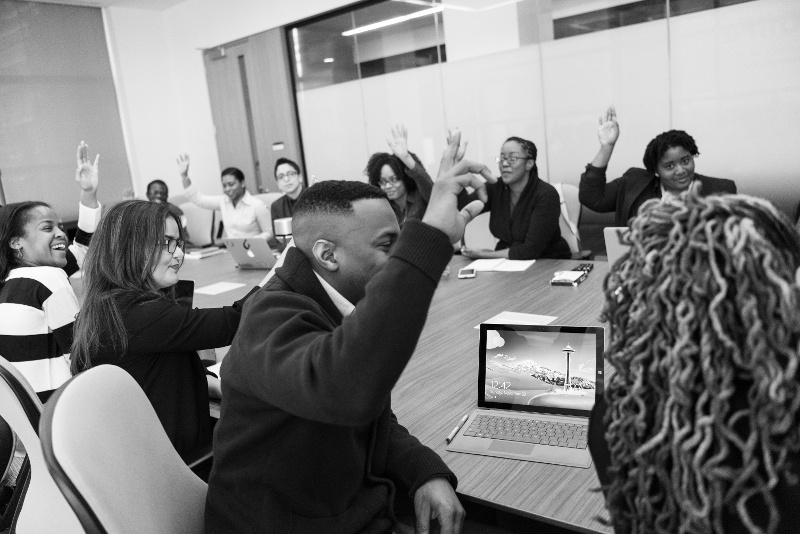When accepting her Academy Award in 1984, Sally Field expressed her excitement by saying, “They like me! They really like me!”
We all want to deliver Oscar-worthy business presentations. But, all too often, conference presentations involve reading directly from the PowerPoint with little explanation or energy. Without an engaged speaker, the audience is left unenthused and uninterested.
Your presentation doesn’t have to go this way. Follow these tips and deliver a memorable speech at your next conference:
Jazz Up Your Slides
Steve Jobs’ MacWorld presentations are the stuff of legend. He had a PowerPoint secret: each slide only contained one word. Rather than including every word of his presentation in his deck, he created mystery and built anticipation for what he would say next.
Regardless of its purpose, your PowerPoint presentation should add value. You can do this in several ways:
- Limit the words on-screen – follow Jobs’ lead and let the words add to your performance, not dictate it.
- Use visuals – Think of the on-screen presentation like you would your Facebook feed. Text-only updates get skipped over, memes get likes.
- Use video – Video engages people in a way that words never can. Short videos can provide a change of pace to your presentation.
Ask Questions
People have little interest in hearing everything you have to say. They want information that will help their particular situation. While you cannot create an individual presentation for every person in the audience, you can allow them to personalize it for themselves.
Allow audience members to volunteer answers to open-ended questions. By encouraging their participation, you help your audience apply your insights to their situations. Respond to those who engage with specific feedback, but expand upon their answers to apply the situation globally. Some examples of open-ended questions include:
- Where do you want to be in five years?
- How do customers discover you?
- What was the best sales strategy you ever witnessed?
You can also ask questions with simple, specific answers. These can include “pop quizzes” where there is a “right” answer or polls where audience members can give feedback about their own experiences with a “yes-no” or multiple choice answer. You can go old school when using questions and ask people to raise their hands to vote. Or, you can take your quizzes high tech with software like Polls Everywhere.
Not everyone will want to engage outwardly. While some do not want to “give away” their insights to the competition, others are simply shy and do not like being put on the spot. To engage these attendees, ask them to write down their answers on a handout. They will reflect on your material without needing to voice their opinions to the group.
Use Group Activities
Group activities bring out the best in both introverts and extroverts in your audience. Introverts will often volunteer responses when there are only a few other people around while they are more reticent in the large group. Extroverts will feel valued as they provide leadership to the group. You can also rely on the extroverts to bring the small groups’ insights to the larger audience.
You can use open-ended questions as described above to shape the small group discussion. You can also provide a product for the group to explore or manipulate to engage the kinesthetic learners in your audience.
Want to kick it up a notch? You can stage a challenge between small groups. People love to participate when there is something at stake, so provide a small prize. Here are some ideas for competitions:
- Solve a puzzle or riddle – Provide a puzzle that takes some time to work through. The first team to come up with the answer “wins.”
- Trivia – Develop trivia questions related to the topic at hand. Ask the small groups to provide answers. The team with the most correct answers “wins.”
- Doodling – Ask your groups to create drawings about the topic you’re presenting. This engages visual learners. You can either select a “winner” or allow the larger group to vote on the best drawing.
Winning the Business Presentation
When your audience wins – whether it is a trivia game or it is taking home meaningful information – you win. You’re unlikely to receive a trophy for your work, but you will be able to say, “they like me. They really like me!”


